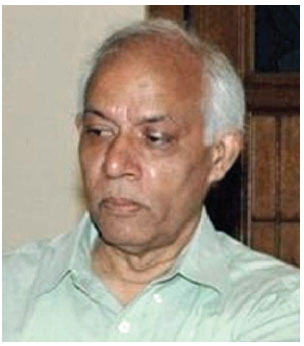IT is a tale of two cases in quick succession, where two senior civil servants were put on trial for alleged acts of corruption on the ground of causing benefit to somebody by their actions which, according to the CBI, were not in public interest. That they did not benefit themselves or their family and friends was irrelevant. Curiously, both the officers enjoyed impeccable reputation for personal integrity in the eyes of everyone who knew them.
Both were charged under the provision of Section 13(1)D(iii) of Prevention of Corruption Act, 1988, which does not require any criminal intent for proving the charge of corruption. In my view, this provision is specious, illogical and bizarre. It must go.
In the entire community of civil service, I could find only one supporter of this mindless provision. According to him (being a friend, he will remain nameless), this provision must remain to deal with ‘undesirable and dishonest’. He considers it unwise of the government to take steps to delete the clause. He thinks that deleting this provision from the statute is not in the ‘larger’ interest. According to him, PC Act is the only legislation that allows chargesheet and legal process against such undesirable elements without prior approval and without criminal intent. Perhaps, in his learned view, all the delinquents should be caught only after their retirement from service. The only other person batting for retention of the provision is the politician, who was instrumental in putting this bizarre provision in the Act in the first place.

In the instant case involving H C Gupta, former Coal Secretary, it is most heartwarming to see the overwhelming flow of support to him in the trial for conspiracy and corruption by a CBI Court. Gupta, who is known in official circles for his almost legendary competence, uprightness and honesty, faces these absurd charges in the infamous coal scam. When he moved an application in the Court pleading for cancellation of his bail bonds and facing the trial from jail, all hell broke loose.
Learning about the poignant plea made by him in the trial court, his colleagues in the civil service could not hold back their anger at the system they themselves were part of. Their remonstration was joined by thousands of others who did not know him directly, leading to an outpouring of emotional support from different sections of population; however, that extended by the otherwise sniggering mediapersons was incredible. To quote from an article written by a noted journalist, “By refusing to submit to his dehumanising charade and refusing to feel diminished, Gupta has shamed us all and made us feel small in our vindictive pursuit of partisan agendas”.
Earlier, there was a similar travesty endured by another senior bureaucrat, who like Gupta was prosecuted for corruption long after his retirement, it required many appearances in the court as an accused and lengthy arguments in defence before the case ended in severe strictures passed by the Supreme Court against the CBI of maliciously embroiling the officer in the case.
Between the two cases, a cruel pattern clearly emerges. It applies a wholly different standard to those unfortunate civil servants who assiduously served a previous government before superannuating. Why should there be a difference in the level of statutory protection between civil servants in service and retired civil servants in presumption of criminality by investigating agencies is a question raised by two separate cases involving senior civil servants.
A telling comment from a corporate executive was that ‘it is frightening to imagine the fate of a civil servant after serving the government diligently and honestly for close to four decades’. He wondered whether young men and women would still like to join the civil services after being told about the existence of this section in PC Act.
Strangely, the learned Supreme Court was pleased to stay the proceedings against the former Prime Minister and another Coal Secretary in a similar, if not identical, matter, but did not even accept clubbing of all the cases arising out of the same facts in the case of Gupta. “There is no forum of appeal for Gupta as the trial court is reporting directly to the Supreme Court,” a senior bureaucrat reportedly said.
Two simple consequences can flow from the Kafkaesque charade we are witnessing. One, the weight of public resentment at the treatment meted out to Gupta under a patently unjust and absurd provision of law may somehow tilt the judicial process in his favour; though it appears highly unlikely, I would not rule it out. Two, in the event of Gupta being convicted of offences he never committed, the blow on the already low civil service morale will be incurable. The obvious fallout would be a partial or total unwillingness of civil servants to initiate or approve of any constructive proposal in the government.
THE Prime Minister recently said that India needs “rapid transformation” instead of “mere incremental progress” to meet the challenges of the future. For this, “the policy makers need to reorient existing administrative systems and laws, abandon unnecessary procedures and adopt technology”.
‘Rapid transformation’ requires bold decisions, not only at the top but at various decision points in the government hierarchy. If Gupta’s cases in court result in conviction, it may be difficult for the PM to find enthusiastic civil servants to ‘abandon unnecessary procedures’ today only to face prosecution at CBI’s hands after years in retirement when a rival political party takes over the reins of the government.
Is there a palpable atmosphere of fear among senior bureaucrats? Frankly, I do not see any, now. Individually, they seem to be ensconced in the comfort of the syndrome that ‘it happens to others, not to me’. Collectively however, they express deep concern and danger to the civil service. In a meeting of the association, they poured out the trepidation of being hounded by CBI after their superannuation.
Endpoint: Should a bureaucrat be presumed to be corrupt till proved otherwise in a court of law?
The writer was the Cabinet Secretary and the first Governor of Jharkhand. He can be reached at pkumar1511@hotmail.com
Prabhat Kumar is an Indian Administrative Service officer of the 1963 batch, he served as the Cabinet Secretary of Government of India between 1998 and 2000. Upon creation of the State of Jharkhand in November 2000, he served as the first Governor.






























































